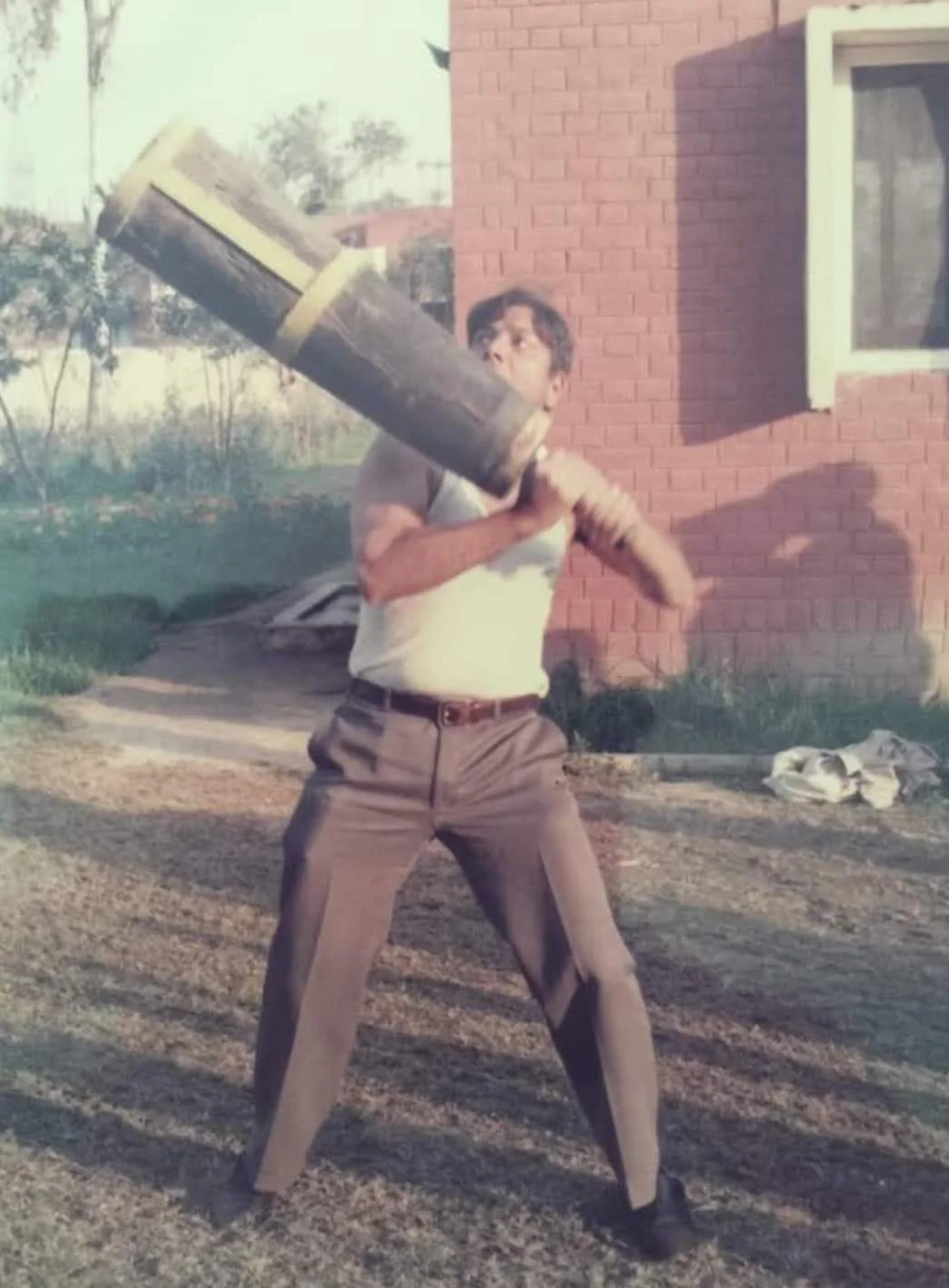Indian Clubs With Krishen Jalli
Indian club swinging can be different things to different people. Some use it to build strength, others swing clubs as a way to keep the body and mind agile. Indian club swinging can also be a beautiful, physical as well as cultural and historical art form.
As a personal trainer and fitness coach, I use Indian clubs with my clients for all of the above, but especially as a means to keep the body and mind young and mobile.
As a lifetime student of health and fitness, I’m always looking to meet inspirational people who share my passion for physical culture. After viewing Krishen Jalli’s youtube videos, with him demonstrating heavy Indian club swinging at the age of 75, I was left very impressed! Not only with his strength but also agility and co-ordination. Here was obviously a man who was reaping the rewards from a lifetime of correct physical exercise.
Naturally this made me want to find out more from him. Not only for my admiration of his club swinging but also in the hope I could learn something to help make me a better coach to my clients.
Krishen Jalli at 36 years old pictured at the annual sports event of Punjab. Each club weighed 25kgs and is an extreme demonstration of strength.
Krishen was only too happy for me to visit him, and I soon made the trip to Bexleyheath. I received a warm welcome from Krishen and his son.
Krishen was born In a village just outside Punjab, India in 1934. He was first introduced to Indian clubs by his father (who was an amateur wrestler) at just 5 years old. Wrestling was very popular in his village and swinging heavy clubs is a fantastic way to build the circular strength needed for the sport. Today Krishen swings Indian clubs for health as well as the pleasure of keeping this tradition alive. Krishen is also very aware of the importance of community. He has spent the last 49 years doing various volunteer work in England and is honorary treasurer of Plumstead Community Law Center and the Director of the Asian community center in Plumstead . Krishen was also Chair of a Hindu organisation which helped build a temple in Woolwich.
After a short chat about his history, Krishen was keen to get straight into some club swinging. He began by preparing his body with a short joint mobility routine. He also used a spot of water to help his grip on the well polished clubs made by Mike Simpson in Sheffield.
Once warmed up, Krishen performed a routine of alternate mills using 2.2kg clubs. He explained that he would swing these clubs six times a week for around 20 minutes as a means to keep his shoulders mobile and strong. He then went and picked up a 10kg pair of clubs (5kg each) with a grin on his face.
“My wife shouts at me, when will I stop swinging heavy clubs. To keep the peace I listen to her, but she’s not here today”
As he did with the 2.2kg clubs he began to swing the heavy clubs with the same grace and control before giving me my turn.
Krishen also talked me through his pranayama breathing routine which he also spends 20 minutes doing each day.
The main lesson I took home from meeting Krishen and watching him swing his clubs is the importance of little and often while viewing the time spent as a chance to practice a skill. Lifting too heavy too soon will soon cause injury.
As swinging Indian clubs is a real skill it is also a great way to keep the mind alert and supple. Krishen highlighted the importance of using light, as well as heavier clubs. However, Krishen stressed the importance of not trying to replicate the exercises you may be able to do using the light clubs with heavier ones. He tends to have separate exercises for the two varieties and is a proponent of using two hands for one heavy club in a similar way one might use a Gada or mace.
It also became clear to me the importance of finding a form of exercise that you enjoy. It doesn’t have to be Indian club swinging. If you love running, run! If you hate running don’t, as life is far too short to spend it doing something you don’t enjoy. It may be dancing, Taiji, golf or tennis. These things can all take and serve you into old age. If you start young your body gets used to it and you can keep going. Try picking up a tennis racket at 85 without any previous practice and you are far more likely to get injured. What I’m fairly sure won’t take you into later years however is those forms of punishment like spinning or “Hiit” training.
Keep it gentle and develop a skill for the love and enjoyment of it!


